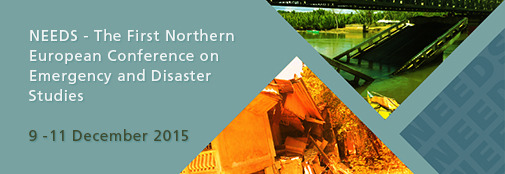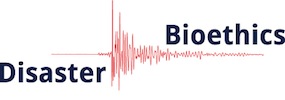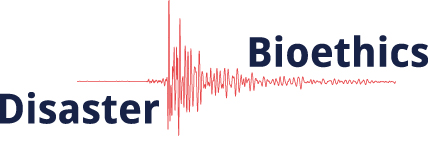Blog on Ethics and Evidence
You may be interested in a blog just published (@domathuna) on ethics and evidence for Evidence Aid (@EvidenceAid), an organisation promoting evidence-based resources for disaster relief and humanitarian aid. It includes a response from Hugo Slim (@HSlimICRC), Head of Policy for ICRC.
- http://www.evidenceaid.org/ethics-and-evidence
- http://www.evidenceaid.org/ethics-and-evidence-reply-to-donal-omathuna
Your comments would be welcome on the blog page.
.
Open Letter on the "Migrant Crisis"
Open letter signed by action members (see list below)
Alongside the so-called migrant crisis across the European Union is an evolving moral disaster. Repeated migrant boating tragedies, where hundreds of lives are lost with each capsize, and the escalating desperation in Calais have been greeted with a noticeable decrease in solidarity and empathy from EU policy leaders and citizens.
It seems we are increasingly having to justify what should be a given: a refusal to abandon the most vulnerable. We must all recognise that every individual migrant is part of a worldwide narrative of conflict, disasters and threats of persecution that have made their homes uninhabitable. Many of our fellow citizens have found themselves in similar situations in the past and more recently.
Our consciences should be disturbed further by how most refugees are accommodated, not by the EU, but by lower-income countries. This reflects the sad moral state of our European Union.
The EU has, of course, finite resources, but this suffering offers opportunities for us to shape the world into a better home for all humanity. To avert the unfolding moral and humanitarian disaster we must acknowledge and act upon our obligation to provide humanitarian assistance that ensures shelter, safety and dignity for each refugee.
| Dr Ayesha Ahmad UK Mr Andrew Akampurira Uganda Professor Vilhjalmur Arnason Iceland Dr Sheena M Eagan Chamberlin USA Dr Murat Civaner Turkey Dr Caroline Clarinval Switzerland Professor Michel Debacker Belgium Professor Ignaas Devisch Belgium Professor Michele Landis Dauber USA Professor Maureen Ehrensberger-Dow Switzerland Mr Vilius Dranseika Lithuania Professor Heather Draper UK Professor Jonina Einarsdottir Iceland Professor Eugenijus Gefenas Lithuania Professor Niklas Juth Sweden Assistant Professor Peter Kakuk Hungary Professor Eleni Kalokairinou Greece Professor Pinchas Halpern Israel Dr Ghaiath MA Hussein UK Dr Kararina Komenska Slovakia Professor Dusanka Krajnovic Serbia Dr Donal O’Mathuna Ireland Professor Pierre Mallia Malta |
Dr Jay Marlowe New Zealand Dr Daniel Messelken Germany Dr Signe Mezinska Latvia Dr Goran Mijaljica Croatia Dr Elysee Nouvet Canada Dr Emilomo Ogbe Belgium Dr Teresa Sarmento Pimentel Portugal Dr Aivita Putnina Latvia Professor Vojin Rakic Serbia Mr Rob Ranisch Germany Dr Joanna Rozynska Poland Dr Johan von Schreeb Sweden Professor Jackie Leach Scully UK Dr Kadri Simm Estonia Dr Chesmal Siriwardhana UK Professor Jan Helge Solbakk Norway Professor Peter Sykora Slovakia Dr Behnam Taebi Netherlands Dr Lars Ursin Norway Professor Emanuele Valenti Spain Dr Vina Vaswani India Dr Marcin Waligora Poland Dr Shlomit Zuckerman Israel |
Published at:
Announcement: First Northern European Conference on Emergency and Disaster Studies
The interdisciplinary research project Changing Disasters is happy to announce the first Northern European conference on emergency and disaster studies.
 The NEEDS conference aims to explore the status quo of disaster research and management. The conference wishes to harness its broad, interdisciplinary expertise by gathering disaster researchers from academic institutions and practitioners from the disaster management community (European and beyond) to build networks and to discuss the most pressing issues in disaster research across the academic and practical disciplines.
The NEEDS conference aims to explore the status quo of disaster research and management. The conference wishes to harness its broad, interdisciplinary expertise by gathering disaster researchers from academic institutions and practitioners from the disaster management community (European and beyond) to build networks and to discuss the most pressing issues in disaster research across the academic and practical disciplines.
- Find more information including a CfP on their website:
http://changingdisasters.ku.dk/calender/needs/
Programme for Workshop "Moral Theories and Disaster"
The programme for the upcoming workshop on "Moral Theories and Disaster" held togehter with the Institute of Ethics and Bioethics at the University of Presov is now online.
Please check the workshop page here.
CfA: 2nd Disaster Bioethics Summer School (2015)
 |
 |
7th - 11th September 2015
Birmingham
This event is targeted at those who respond to humanitarian emergencies and disasters. It will also be useful for academics working in the broad area of humanitarian crisis, particularly in ethics.

The aim of the week is to give participants sufficient skills, knowledge and confidence to work up a small case study that could be used to provide some basic ethics training or preparation for humanitarian healthcare workers.
Subsistence and travel grants are available. For more information about the summer school and to make an application for a place and grant please go to the summer school page here.
Research Project on Ebola humanitarian deployment
We are delighted to announce that we have secured ESRC funding for a project related to the Disaster Bioethics COST action.
The project is called: Military healthcare professionals’ experiences of ethical challenges whilst on Ebola humanitarian deployment (Sierra Leone). We will be interviewing returning British military medical personal about the ethical challenges they faced. We will also be preparing training materials, which we will make available through this action. For more information, see: http://www.birmingham.ac.uk/research/activity/mds/projects/HaPS/PCCS/MESH/research/Military-Medical-Ethics/ebola.aspx
